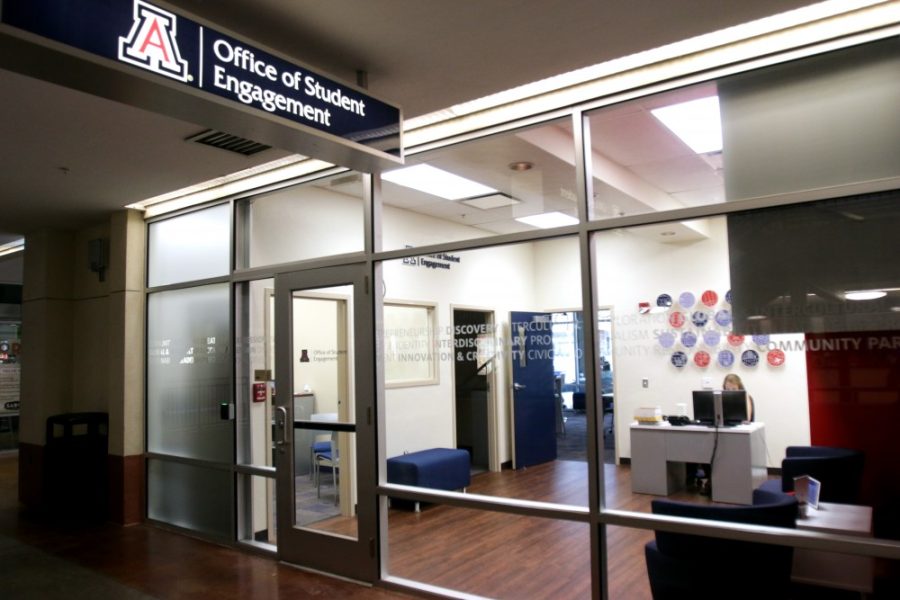In 2012, The Chronicle of Higher Education asked employers to list the most important factors they considered when hiring recent college graduates. A student’s coursework and GPA ranked near the bottom of the list. Internships and employment during college ranked first and second.
This would not surprise most of today’s University of Arizona students. We understand that good grades and rigorous classes are not going to get us very far on their own. Instead of taking the more difficult course or studying an extra few hours for an exam, our time is better spent researching in a laboratory, applying for oftentimes unpaid internships or volunteering in the community.
UA’s administration also recognized this shift in the value of a university degree. In 2013, UA’s Never Settle strategic academic and business plan called for every UA student to be given the opportunity to apply and integrate their knowledge in real-world learning experiences.
RELATED: OPINION: UA party culture is for the selected few
The 100% Engagement initiative was born to meet this goal.
It does not create new opportunities for students to apply their knowledge in the real world. Instead, 100% Engagement “define[s] our common values around these experiences in the form of Engaged Learning Activities nad Competencies,” according to their website.
100% Engagement does not provide access to additional financial support for students to seek out these opportunities, it instead adds an “Engaged Learning Experience” notation to students’ official transcripts.
The model of university education desperately needs to be modernized, 100% Engagement is a bureaucratic step that does not add value to a UA degree.
I have participated in five 100% Engagement experiences, four semesters of undergraduate research and one semester preceptoring a neuroscience course. A mark on my transcript is not worth the added paperwork I am required to complete to enroll in these credits.
100% Engagement asks students to reflect on, in writing and at length, the three core principles of every engagement experience: competency, activity and skill.
RELATED: OPINION: State funding would help more students afford college
Competency pushes students to leverage innovation and creativity to question the status quo and generate new ideas. Activity guides students towards discovery, reflecting on the development of solutions to real-world problems. Skills require students to convey how an experience will teach them problem-solving and critical thinking.
If these “common values” sound like a lot of buzz words, it’s because they are.
A required line on my resume does not need to be supported by an asterisk on my transcript.
The program’s paperwork annoys me more because I know if I were a molecular and cellular biology student, research and preceptorships would not be considered 100% Engagement opportunities and would require no additional paperwork. It is important to note that some preceptorships requires the paperwork while other programs say it does not. This makes the 100% Engagement initiative complicated because its implementation is inconsistent.
100% Engagement does not represent UA’s full effort to transform university education, but it is a good case study of initiatives that do more compared to initiatives that produce change.
UA’s academic programs need to acknowledge the trade-offs faced by its students. Students should be able to replace required courses with internships, research and other real-world experiences. Additionally, more academic programs should require these experiences.
Students should have access to additional support to find these opportunities and the financial resources to pursue them. Coursework should incorporate outside the classroom experiences and place a reduce emphasis on root memorization and difficult exams.
Genuine campus-wide investments to create new research, internship opportunities and other related resources for students are necessary.
As part of this investment, the UA needs to recognize students are busy. Students are forced to balance a lot, we should trust them to be able to articulate the benefits of these all-but-necessary experiences without the added time-intensive paperwork.
Follow Randall Eck on Twitter









